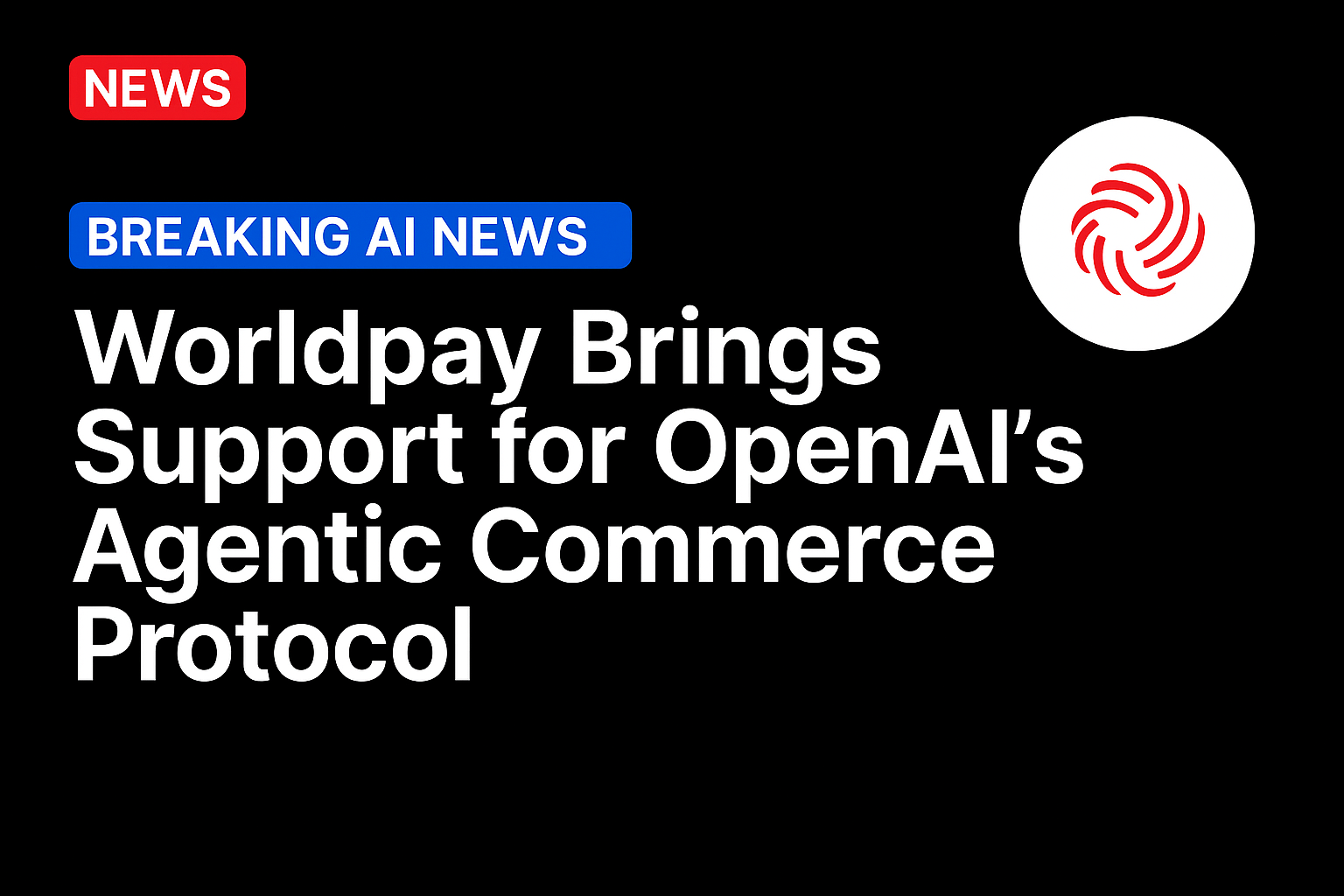As the company noted in a news release Wednesday (Oct. 29), this is an open standard for artificial intelligence (AI) commerce allowing AI agents, people and businesses to work together on purchases.
With ACP, the release added, U.S. users of OpenAI’s ChatGPT will be able to shop directly from participating Worldpay merchants using Instant Checkout.
“For agentic commerce to truly scale, it must deliver seamless, secure payments that both consumers and merchants can trust,” said Cindy Turner, chief product officer at Worldpay.
“Our credential management doesn’t just keep payment data safe – it keeps it up to date to mitigate failed transactions. We’re developing future-proof, multi-agent solutions designed for scalable growth. By integrating with OpenAI’s Agentic Commerce Protocol, we’re empowering merchants to stay ahead as AI transforms the shopping experience.”
The release added that Worldpay’s credential-management solution will allow merchants to “confidently adopt AI commerce use cases” using “flexible, acquirer-agnostic token management,” automatic credential updates to reduce the number of failed transactions, and enterprise-grade security to safeguard sensitive data throughout each stage.
The announcement comes on the heels of PayPay’s adoption of the ACP, to let shoppers use PayPal’s wallet to pay for products found through ChatGPT. These new integrations come at a time when agentic AI is transforming eCommerce, as PYMNTS wrote earlier this month.
“As retail enters the emerging Prompt Economy™, where autonomous artificial intelligence (AI) agents don’t just suggest but act, autonomy is becoming the defining edge in commerce for retailers,” that report said.
Research in “The Prompt Economy™: How AI Agents Turn Conversation into Commerce,” a PYMNTS Intelligence and Visa collaboration, revealed that the difference between a browsing session and a purchase is increasing a question of whether AI is ready to answer not just with information, but with action.
“A request, in other words, that ultimately becomes a done deal,” as PYMNTS put it.
The past decade of retail innovation centered around prediction. Recommendation engines offered shoppers products they might like. Forecasting models assisted merchants in anticipating demand. Chatbots provided answers, albeit often clumsily.
When generative AI came along, everything changed. But as the PYMNTS Intelligence report argued, generative AI generates content, while agentic AI produces outcomes.
“That distinction is critical,” PYMNTS added. A generative system may list the top five vacuum cleaners. An agentic system compares features, checks reviews, applies loyalty credits and completes the purchase on your behalf, all while flagging a potential shipping discount the shopper may not have known existed.
Source: https://www.pymnts.com/





